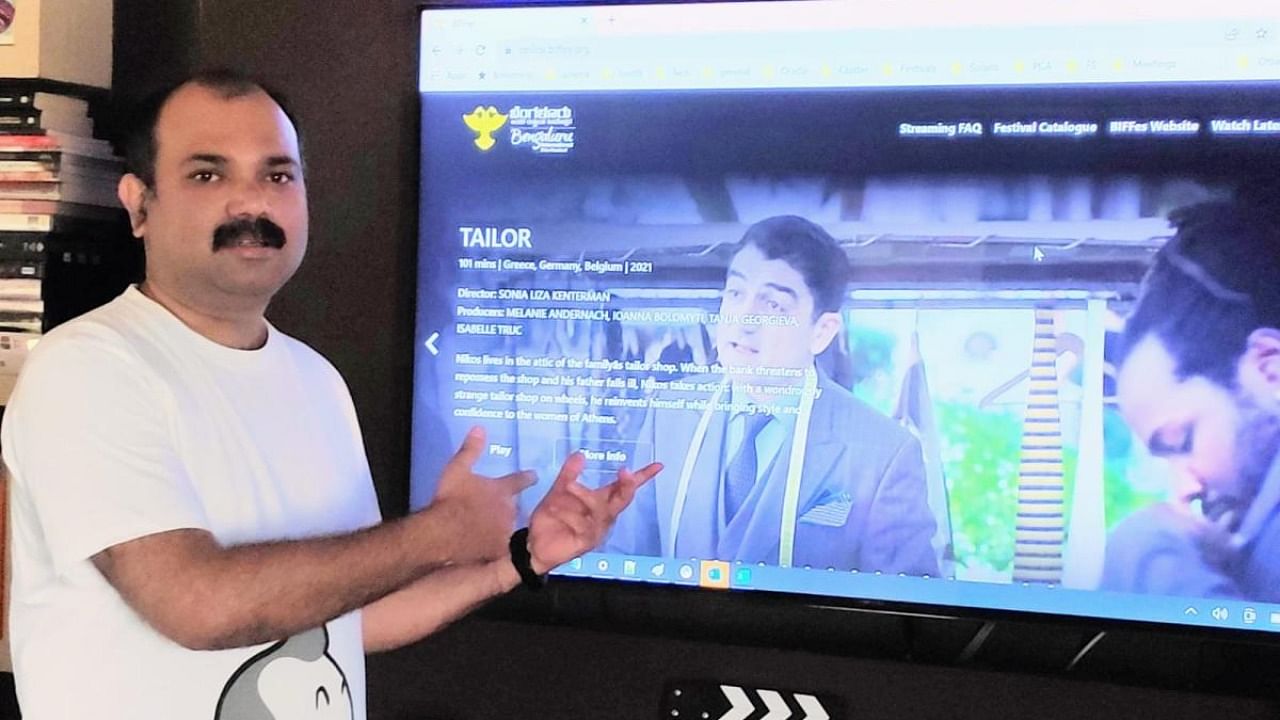
For the first time, BIFFes was held in a hybrid manner because of the Covid scare. The last edition of the prestigious Cannes Festival Market, Marche Du film was held entirely online and that was our inspiration. Only that we got a go-ahead just eight days short of the festival!
It was working long hours within the small time period but turned out to be a terrific learning and satisfying experience eventually as we were all engaged in doing something that wasnt done before in BIFFes.
To begin with, the architecture for online screening had already existed. Film festival agents host online screenings for curators who are keen on procuring the films. Screener links are shared and security of the films is ensured. On our end, we collaborated with CineSend, a Canadian startup and a pioneer in cloud storage, conversion, and delivery of high-security applications. It also has worked for reputed festivals like Sundance, Tribeca, HotDocs.
Initially, we planned to screen 10 new films for 24 hours, starting from 9 am to subsequent day 9.00 am. But as more film entries came in, we relaxed the time limit. On the closing day all the films there were a part of onlince screenings were made available for the subscribers to catch on films they had missed. On the occasion of international womens day on March 8 around fifteen films which had female protagonist narratives were made a part of online screening schedule.
How did we make sure films weren’t downloaded? Companies such as CineSend and Shift72 deploy an encryption technology called Digital Right Management. If you download a film secured with this encryption, it will play in a jumbled-up manner
Could the films be recorded with cameras? We made it impossible by applying watermarks. If people try to edit them out, forensics of the software makes it possible to track down such offenders. Even if you use screen recording software, you will only see the subtitles and not the visuals – it is a highly protected file.
Cinesend technology also allows a film’s team to upload the Digital Cinema Package (DCP) on the cloud, which organisers can download at their end. DCP is a collection of audio, image, and data streams. Earlier, these DCPs would be sent in hard disks.
For this, we first provide a link to the filmmakers. Once their upload is complete, we get a message, and then we proceed with a quality check. This is done to ensure their films aren’t uploaded wrongly, misplaced, or subtitles sync issues.
We also broke new grounds with BIFFes. We streamed the films on TV using the BIFFEs app on Fire TV stick, a first for any film festival in India. Had we had more time, we could have made the app available on the Android store too.
In another first, we live-streamed a movie, our opening film, titled ‘Tailor’. Around 200 online sessions accessed the live stream.
All in all, the maiden virtual edition of BIFFes had over 900 registered viewers. This is an encouraging start given that we had eight days to execute and a team of five. Anand Varadraj lead the overall effort helping in putting the architecture, Nikhil Baradwaj, Sunil Reddy and Rahul Desai ensured subscriber onboarding and troubleshooting. Interestingly we have had very less number of calls overall, the starting couple of days there were issues reported from usage perspective, supported browsers, Operating System and smart TV sets.
(As told to Vivek M V. The author is a film enthusiast and consulting curator at BIFFes for ' Cinema of the World' section).